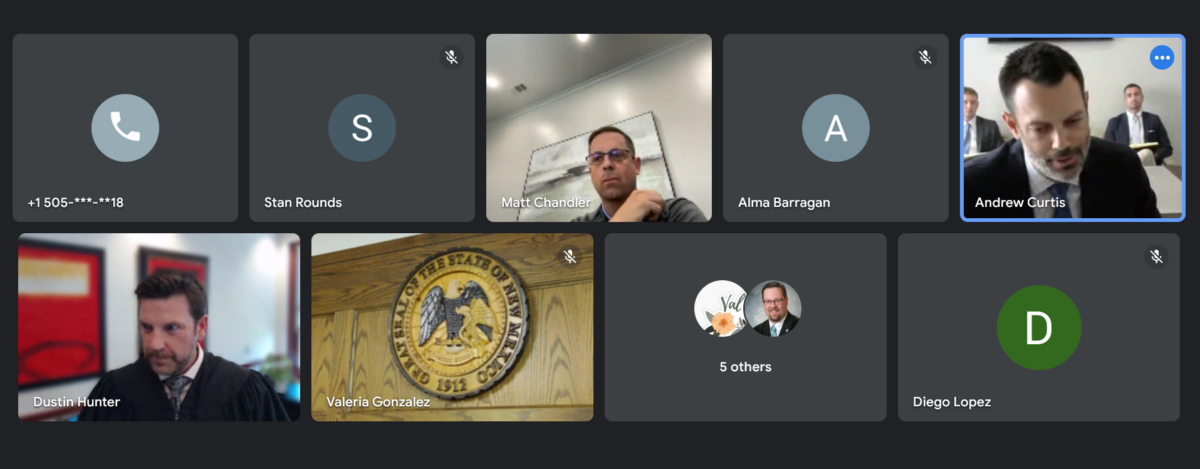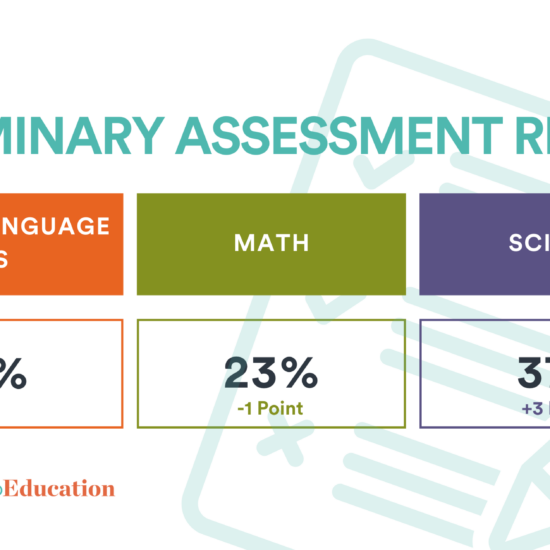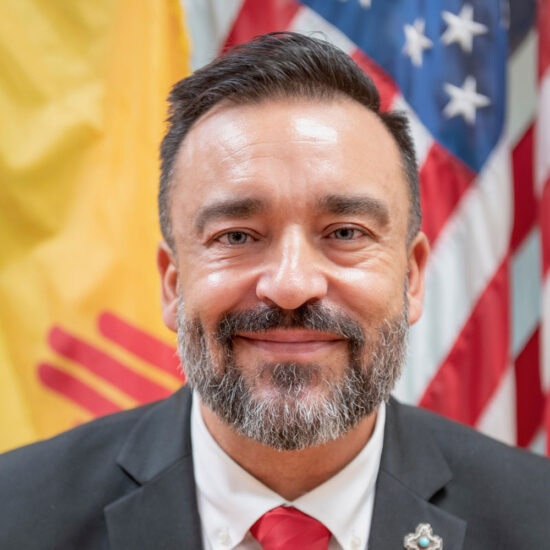
UPDATE: On May 3, at the end of the workday, the court held another hearing after the plaintiffs properly serviced the state. The court issued a temporary restraining order against the 180-day rule. New Mexico Education is awaiting court documents and comments from the Public Education Department and will provide an update when available.
The legal battle over New Mexico’s 180-day school calendar mandate hit a wall after Judge Dustin K. Hunter said he could not move forward with the case after the plaintiff groups failed to properly notify defendants of the lawsuit.
A status hearing was held May 2 and presided over by New Mexico Supreme Court-appointed Judge Hunter. He was appointed by the high court after all five judges in New Mexico’s Ninth Judicial District recused themselves, Hunter is a judge in the Fifth Judicial District.
The lawsuit, filed by the New Mexico School Superintendents Association along with 54 school districts and four charter schools, challenges the Public Education Department’s (PED) rule requiring a minimum of 180 instructional days per academic year. The plaintiffs argue this rule violates state law, which mandates hours of instruction, not days.
The lawsuit comes as only 38 percent of students in the state can read at grade level.
During the hearing, Judge Hunter denied the plaintiff’s request for a temporary restraining order (TRO) which would have temporarily prevented the rule from going into effect
The judge cited a lack of proper notice and service to the defendants as a primary reason for the denial. The plaintiffs had not included an affidavit certifying attempts to notify the opposing party, a requirement for issuing a TRO without notice.
Jeffrey Taber, general counsel for PED, attended the hearing but did not formally enter an appearance, underscoring the PED’s position as a listener at this stage. He made his presence known to the judge and confirmed he was never properly notified of the case.
Andrew Curtis, representing the plaintiffs, expressed urgency due to “imminent harm” from the new rule, which affects budget planning for the upcoming school year starting July 1. Plaintiff attorney Matthew Chandler asked the court to make a decision regardless of certification, claiming the state was already aware of the case as indicated by the presence of the PED’s attorney. However, the judge emphasized the necessity of adhering to procedural norms, including proper service and detailed affidavits, before any orders could be considered.
Hunter also suggested the possibility of expediting the case through an expedited briefing schedule or mediation, recognizing the significant impact of the outcome on school districts across the state.
No future hearings have been scheduled. Hunter said the case can not move forward until the plaintiffs properly service a summons and are in compliance with notification requirements.
“I would like this to move faster, I guess is what I’m saying,” Hunter told the plaintiffs. “But I mean I need the record to show proper service and notice and then once we get people in the case I’m inclined to move as quickly as possible.”
Hunter said he understands the necessity in this case and is willing to move other cases on his docket to accommodate this case.
“But I’m not making that decision right now because again, it has been a week, and we haven’t had service on anybody yet,” Hunter explained. “So, it seems like that’s something we should do, alright? Just so you know, I’m not setting any future hearings or anything yet because this is like any other civil complaint that’s been filed with no service on the defendant.”







